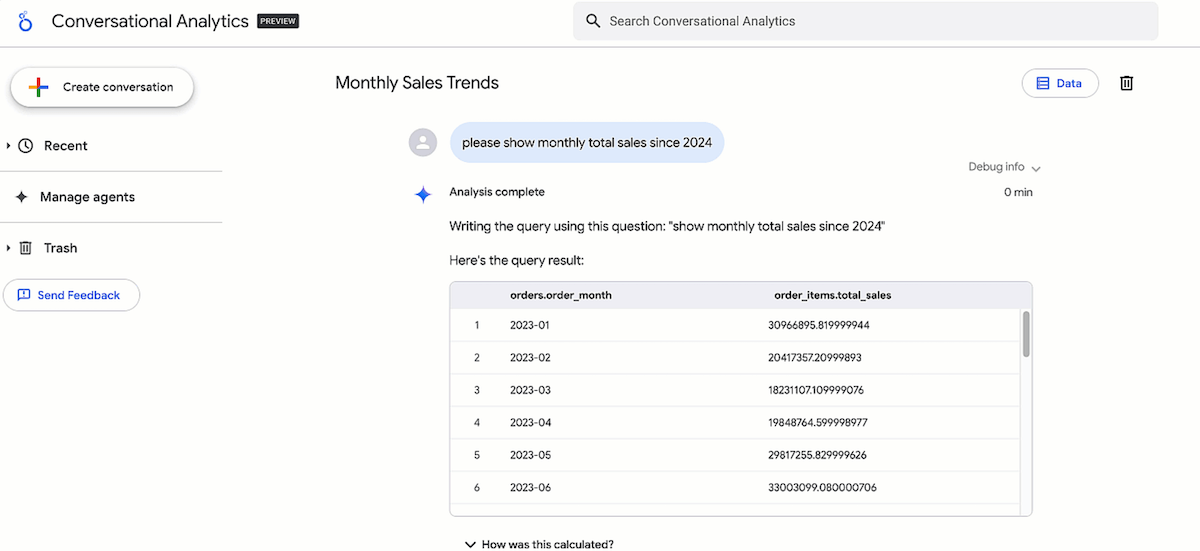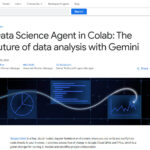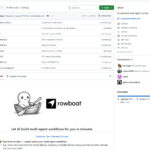The Google Cloud is getting new AI agents for data engineering, data science and analysis. This will support data teams and simplify highly complex data tasks.
Google announced new AI functions in the Google Cloud in August 2025: “Redefining enterprise data with agents and AI-native foundations“. With 3 specialized AI agents, an integrated AI-native data platform and flexible collaboration tools like MCP Server for Looker, it will make data management, data engineering and analytics more efficient and accessible. Here are the highlights:
Data Engineering Agent: Automation of data pipelines
The Data Engineering Agent supports data engineers in the automation of repetitive tasks in BigQuery pipeline workflows. The agent uses natural language prompts to create complete data pipelines – from data ingestion and data transformations to ensuring data quality. This significantly reduces manual effort and increases quality and consistency in data management.
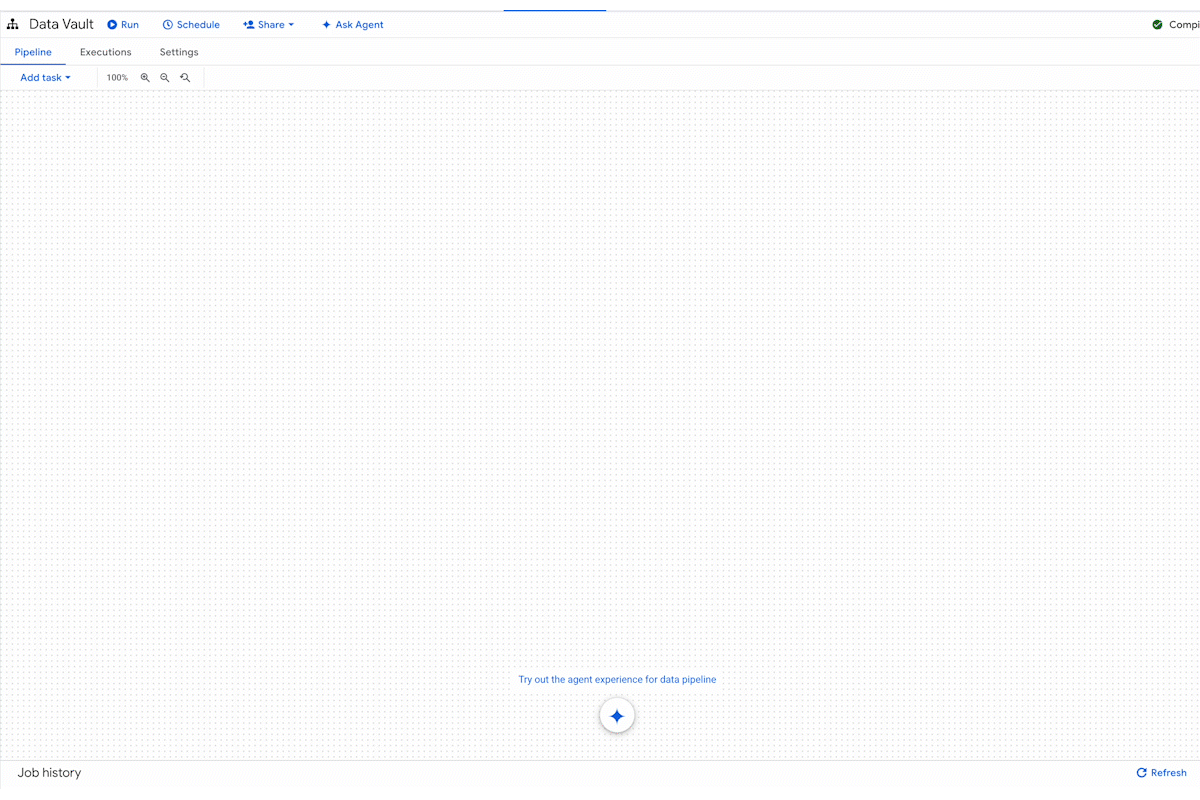
Data Science Agent: AI-supported machine learning workflows
The Data Science Agent works in BigQuery and Vertex AI, supported by the Gemini AI models. It performs tasks such as data cleansing, exploration, feature engineering and automated machine learning. Thanks to the integration of modern AI functionality, data scientists receive a flexible, traceable workflow – from raw data analysis to ML model provision, including support from generative AI.
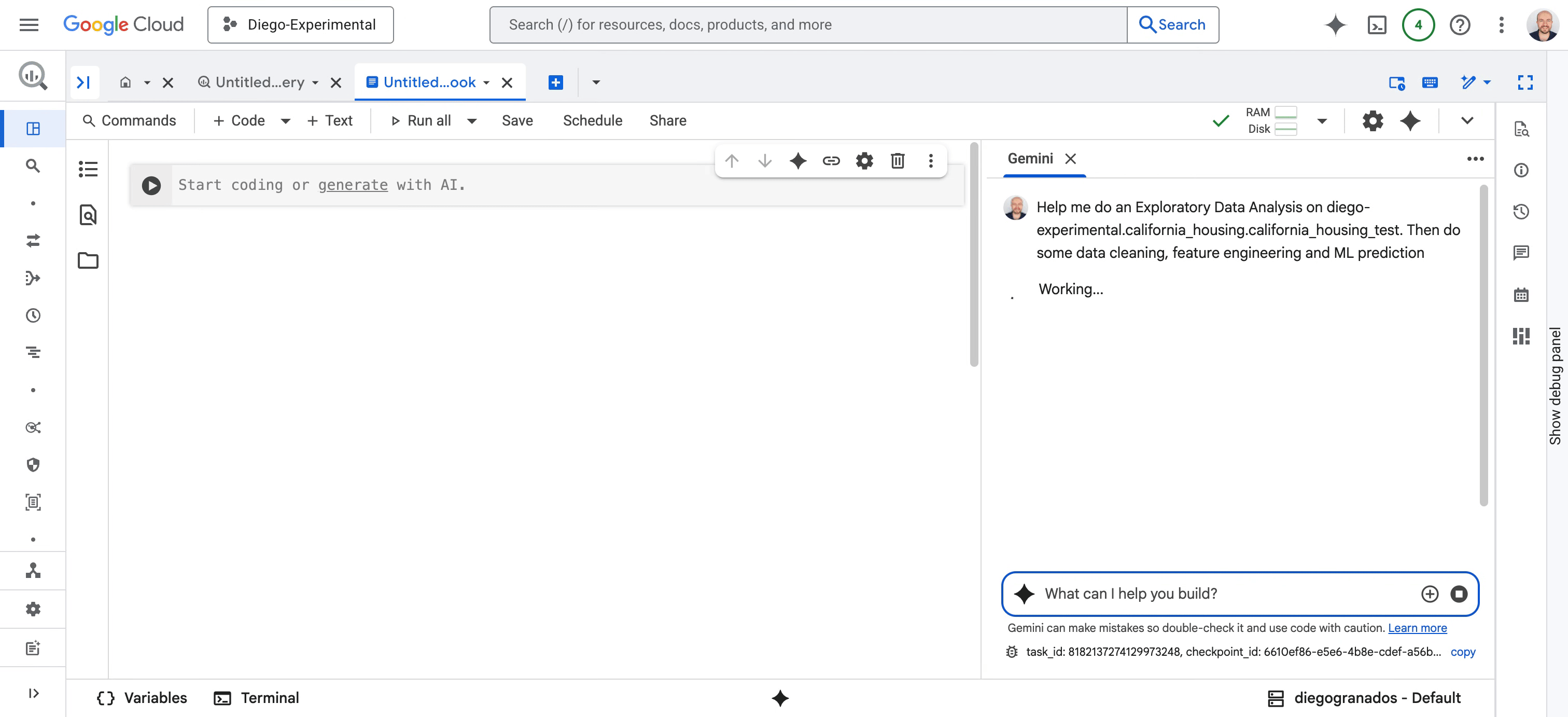
Conversational Analytics Agent: analyses via report and code interpreter
With the Conversational Analytics Agent, complex data analysis can be carried out in natural language. The agent generates in-depth analyses based on user questions and – new – also Python code for advanced evaluations with the Code Interpreter. The underlying models(Gemini and DeepMind) improve the accessibility of data-based decisions even for less tech-savvy users.
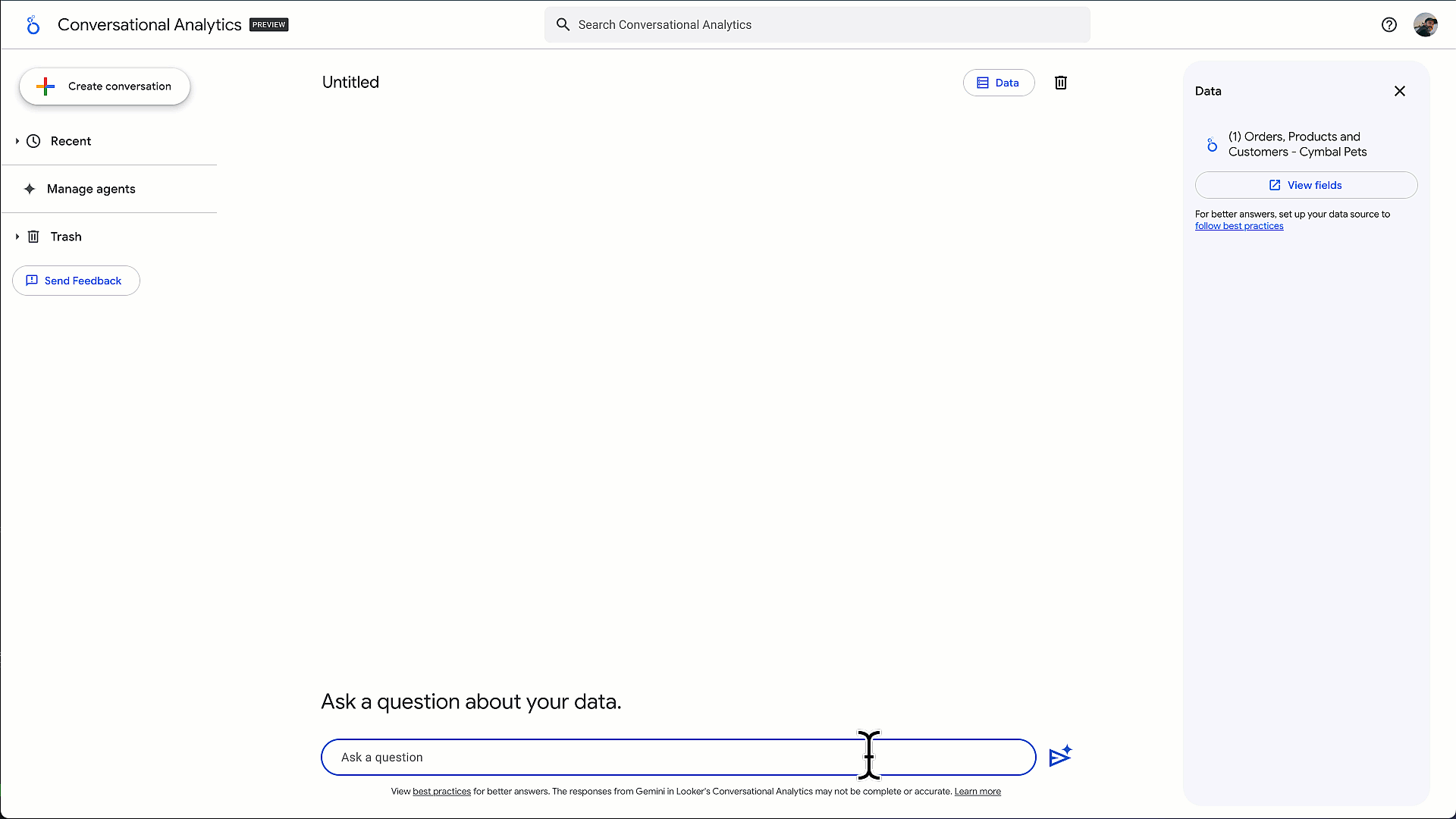
Conclusion: Google Cloud becomes a unified operations, data and AI platform
Google is thus continuing to move forward with the current megatrend of “agentic AI”, i.e. autonomous agents that can take over work processes. New APIs, agent tools and the MCP protocol connect the new Google AI agents with the company’s own agents and AI solutions. This creates a flexible infrastructure for agent collaboration and the realization of uniform, high-performance data workflows throughout the company. Companies can seamlessly integrate their industry-specific AI applications with the Google agents.
New APIs and tools at a glance:
The Google Cloud thus provides a platform that integrates analytics and operational engines. This means that the cloud is not just there for compute and storage solutions, but is continuing to grow together with analytics capabilities. This is also happening at the competitors solution Microsoft Fabric, which introduced “translytical task flows“, thus combining transaction and analysis databases and enriching them with AI agent capabilities to create new data workflows.
Summary
- Google Cloud with 3 new AI agents for data engineering and analytics: Google Cloud brings a new generation of specialized AI agents for all data workflows in Google Cloud.
- Data Engineering Agent: Automates data pipelines and improves data quality through Natural Language Prompts in BigQuery.
- Data Science Agent: Supports ML workflows in BigQuery and Vertex AI with Gemini models and feature engineering.
- Conversational Analytics Agent: Simplifies analytics with natural language and generates Python code through code interpreter.
- AI-native data platform: Unified, secure and flexible with extensive engine support and embedded AI intelligence.
Source: Google Cloud Blog

